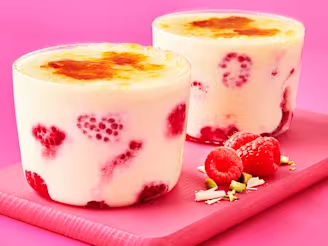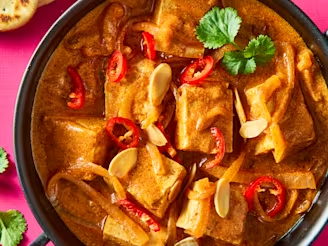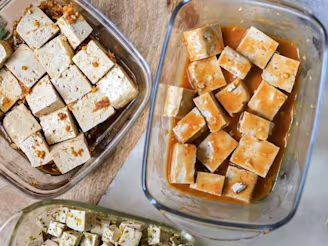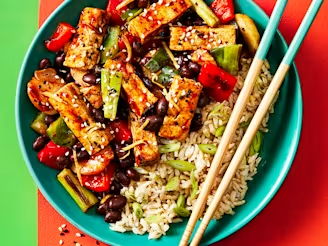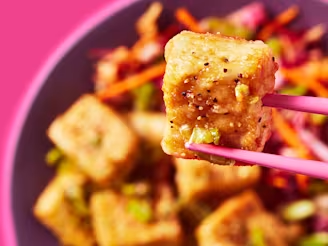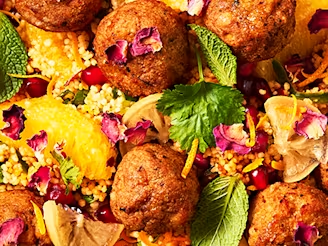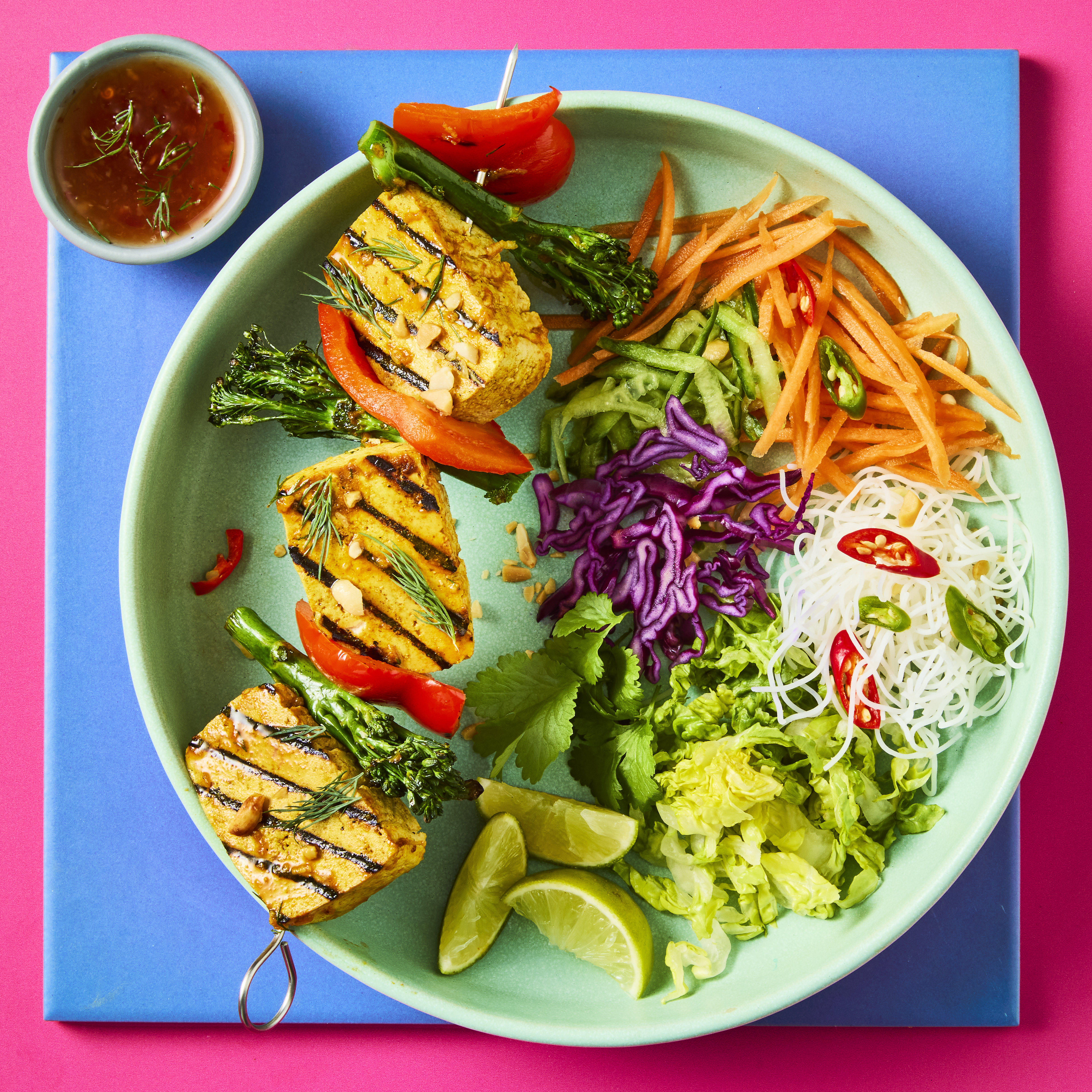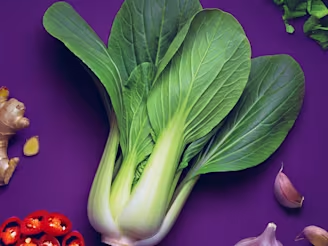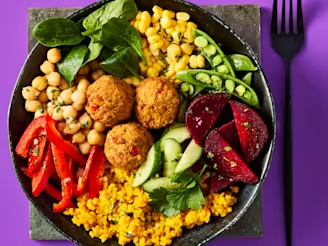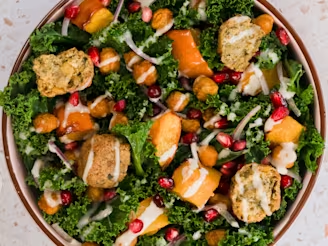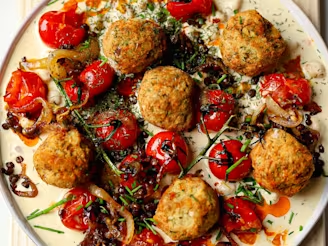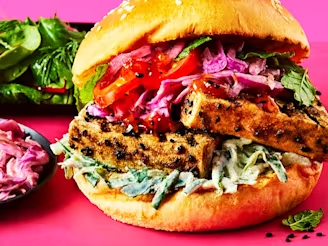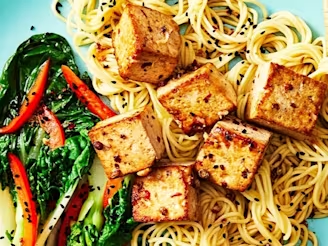Vegan Eatwell Guide
Updated 6th Jan 2026
Whether you’re giving Veganuary a go, fancy trying some plant-based eating, or simply want to pack some more veggies into your diet, we’re here to show you that vegan meals can be fuss-free to prepare and bursting with flavour. Just a little time spent planning - at least for the first few weeks while you get used to it - is all you need.
Swapping out big food groups like meat and dairy altogether (basically going “cold turkey”) requires a little bit of thought about what you are going to replace them with to ensure you’re getting all the right nutrients your body needs to thrive.
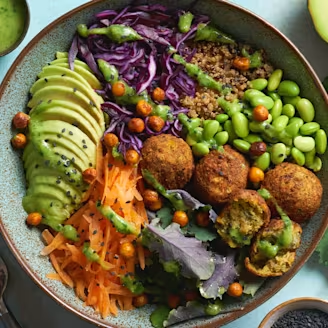
In this blog post, one of our in-house healthy eating experts will walk you through the Vegan Society’s Vegan Eatwell Guide – a great resource to lean on when getting your head around what makes a balanced vegan.
Louise is a Registered Dietitian with a PhD in Nutritional Sciences, making her perfectly placed to share her insights on the topic. Please note that the information shared here is for general purposes only and is not meant to substitute any professional dietary advice or treatment.

What is the Vegan Eatwell Guide?
The Vegan Eatwell Guide produced by the Vegan Society provides a visual representation of a balanced vegan diet, and is based on the Eatwell Guide last updated in 2016 by UK public health authorities, but without the display of animal products and with the inclusion of additional considerations for those on a vegan diet.
The Vegan Eatwell Guide food groups
Like the Eatwell Guide, the Vegan Eatwell Guide is divided into five main food groups, each playing a crucial role in providing essential nutrients and promoting overall health with the opportunity to draw attention to some of the extra considerations for those on a vegan diet.
Fruits and vegetables
This group includes a wide variety of fresh, frozen, canned or dried fruits and vegetables. They are rich in vitamins, minerals and fibre, and should make up just over a third of the food we eat each day.
Potatoes, bread, rice, pasta and other starchy carbohydrates
These foods should also make up just over a third of the food we eat. They are a good source of energy and the main source of a range of nutrients in our diet. Choose wholegrain of higher fibre versions, such as wholewheat pasta, brown rice, brown or wholewheat bread, and potatoes with their skins left on.
Beans, peas, lentils and other proteins
This group encompasses a wide range of plant-based and non-animal protein sources, and also includes chickpeas, tofu, mycoprotein and tempeh. Some of these foods are not only rich in fibre, but also other nutrients including fibre, iron, calcium.
Calcium-rich foods
Calcium is important at all ages for strong bones and teeth. Good sources of calcium for vegans include fortified, unsweetened dairy alternatives, such as soya or oat drinks, as well as calcium set tofu, sesame seeds and dried fruit.
Oils and spreads
This group includes healthier fats, known as unsaturated fats, such as vegetable, rapeseed, olive and sunflower oils and spreads. Although considered healthier, it’s still important to use them in moderation as all types of fat are high in energy.
What advice does the Vegan Society offer about eating well?
The Vegan Society works with the British Dietetic Association to show that well-planned vegan diets can support healthy living in people of all ages, and some of the general advice they share includes:
Incorporate All Elements
Try to incorporate a variety of foods from each of the five food groups represented within the Vegan Eatwell Guide to achieve a balanced diet. This includes aiming to eat at least five × 80g portions of fruit and vegetables a day, incorporating starchy carbohydrates into every meal and choosing wholegrain where possible, and eating a variety of protein-rich plant foods, including them in most meals.
Getting Plenty of Calcium
Eat at least two portions of calcium-rich foods a day. An example of one portion would be 200ml or 200g of fortified plant-based dairy alternatives such as fortified oat drink or fortified soya yoghurt, 70g (uncooked weight) calcium set tofu (such as our Authentic Tofu Block) or two slices of soya or linseed bread, fortified with calcium.
Omega-3 Sources
This family of fats are important for your health and the best way to ensure we are getting enough is to eat foods rich in these fats. Eat omega-3 sources such as nuts and seeds (e.g. walnuts, pumpkin and chia seeds), or use small amounts of dairy-free, unsaturated spreads or oils such as rapeseed or olive oil.
Stay Hydrated
Try to drink 6-8 glasses of fluid per day to keep hydrated. This could be water, sugar-free tea or coffee and unsweetened milk alternatives. Fruit juices and smoothies should not exceed 150ml. This is because high intake of free sugars (released when fruit and veg is blended or juiced) can cause tooth decay.
Limit Less Healthy Choices
Limit foods which are high in saturated fat, sugar and salt. Reading food labels can help you make informed choices.
Nutrients That Deserve Special Attention
As a minimum, consider taking a 10mcg vitamin D supplement daily during autumn and winter (vitamin D3 from lichen or vitamin D2 are animal-free options). It may also be worth considering supplementation of vitamin B12, iodine or selenium but this will depend on the amount being consumed through fortified foods, so consult with a healthcare professional for advice if you have any concerns about your intakes.
Vegan Eatwell Guide plate inspiration
But where does Cauldron come in and how can we help you build a colourful, balanced vegan plate?
There’s not one, but two segments of the Vegan Eatwell Guide that we can help you with!
Check out the nutritional information for both of our Middle Eastern Falafels and Authentic Tofu Block – both of which make great, healthy fridge staples when you’re looking to incorporate more plants into your diet.
Beans, peas, lentils and other proteins
Cauldron Falafels and Authentic Tofu Block both fit nicely into the beans, peas, lentils and other proteins segment of the Vegan Eatwell Guide. Our Middle Eastern Falafels are also high in fibre and low in saturated fat, so are great to include on your plates!
Calcium-rich foods
Our Authentic Tofu Block also contains 400mg of calcium per 100g. This is nearly half your daily recommended value for calcium! This is because our tofu is calcium-set… Watch out though, not all tofu is, so make sure you check the on-pack labels.
So there we have it, a whistle-stop tour on how our tasty plant based products can help you on your way to a successful, healthy Veganuary, transition to a vegan diet, or simply to incorporate more plants & veggies into your mealtimes. For recipe inspiration take a look here, and why not sign up to our email newsletter for more!
Get stuck in
Our blog’s bursting with tips and ideas, info and inspiration. It’s all the stuff about plants that we couldn’t wait to share (but didn’t know where else to put!) There’s so much to get your teeth into.
